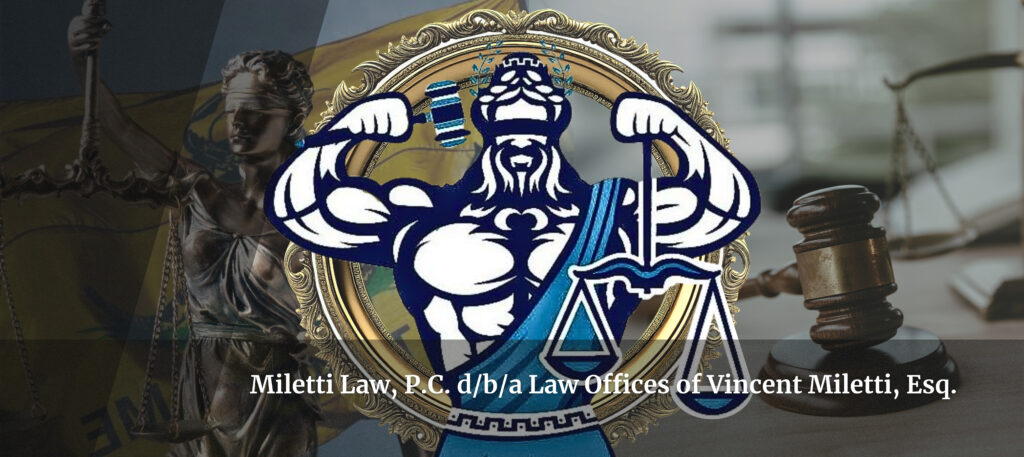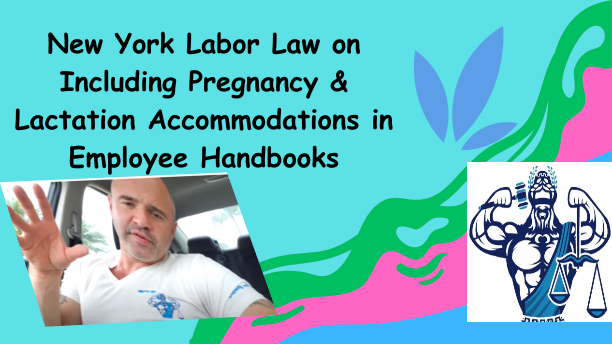Here at the Law Office of Vincent Miletti, Esq. and the home of the #UnusuallyMotivated movement, we take pride as a resilient and dependable legal services firm, providing such services in both a traditional and online, web-based environment. With mastered specialization in areas such as Employment and Labor Law, Intellectual Property (IP) (trademark, copyright, patent), Entertainment Law, and e-Commerce (Supply Chain, Distribution, Fulfillment, Standard Legal & Regulatory), we provide a range of legal services including, but not limited to traditional legal representation (litigation, mediation, arbitration, opinion letters, and advisory), non-litigated business legal representation and legal counsel, and unique, online legal services such as smart forms, mobile training, legal marketing, and development.
Still, we, here at Miletti Law®, feel obligated to enlighten, educate, and create awareness, free of charge, about how these issues and many others affect our unusually motivated® readers and/or their businesses. Accordingly, to achieve this goal, we have committed ourselves to creating authoritative, trustworthy, & distinctive content. Usually, this content is featured as videos posted on our YouTube Channel https://www.youtube.com/channel/UCtvUryqkkMAJLwrLu2BBt6w and blogs that are published on our website WWW.MILETTILAW.COM. With that, the ball is in your court and you have an effortless obligation to subscribe to the channel and sign up for the Newsletter on the website, which encompasses the best way to ensure that you stay in the loop and feel the positive impact of the knowledge bombs that we drop here!
As the authoritative force in Employment Law, it only seemed right to introduce one of the many upcoming series in which we introduce a variety of topics that looks to educate and deliver in a manner that only Miletti Law® can. To that end, this blog is Part I of yet another fresh and new series on “Life Sciences Industry Guide for Labor and Employment,” in which we review the basics and have an overview of what is encompassed as part of the life sciences industry in our blog titled “The Basics and Fundamentals of the Life Sciences Industry.” Generally, life sciences law is an umbrella term that broadly encompasses a wide range of policy judgment, scientific discovery, and legal matters that impact how medical devices, drugs, biotechnological products, and pharmaceuticals are developed, produced, distributed, and used. Ideally, the field encompasses a broad array of endeavors that typically focus on how to promote the healthy lifespan of flora and fauna (both animals and plants). In this regard, the primary focus of participants in this field entails how to develop and mark a broad range of interventions, services, and products.
While the enterprises of biotechnology, medical device, and pharmaceutical are probably the most typical examples within this field, the life sciences industry also includes a range of other subjects and areas. These include, but are not limited to labeling & advertising of medical devices and drugs, off-label use of pharmaceuticals and drugs, zoological & veterinary enterprises concerned with promoting the health of animals, the development, approval, manufacture, promotion, advertisement, and sale of new medical devices and drugs, medical research & technology, handling of biomedical waste & tissue samples.
Other areas include anatomical gifts, clinical trials of drugs, procedures, and medical devices, the transfer, ownership, transportation, storage, and collection of tissue, gene studies & genomics, analyzing biological samples & tissues, drug & human trials, pest control & disease mitigation industries, scientific studies & clinical investigations, evidence-based medicine & technology assessment, and botanical enterprises concerned with promoting the health and propagation of plants.
In light of these subjects and areas, it goes without saying that as a highly-regulated field of life, the life sciences industry is marred with a dozen ethical issues and, consequently, significantly high in employee claims seeking to “blow the whistle” on allegedly unethical, criminal, and unlawful practices. As you would expect, this will be the primary focus of our blogs that will be published under this series.
In Part II of this new series, we shall move the discussion forward and hammer on “Retaliation & Whistleblowing Claims under the Life Sciences Industry.”
In the meantime, stay tuned for more legal guidance, training, and education. In the interim, if there are any questions or comments, please let us know at the Contact Us page!
Always rising above the bar,
Isaac T.,
Legal Writer & Author.
 Professional Legal & Business Services And Representation - English & Espanol!
Professional Legal & Business Services And Representation - English & Espanol!

 314-648-2586
314-648-2586 CALL US NOW
CALL US NOW








